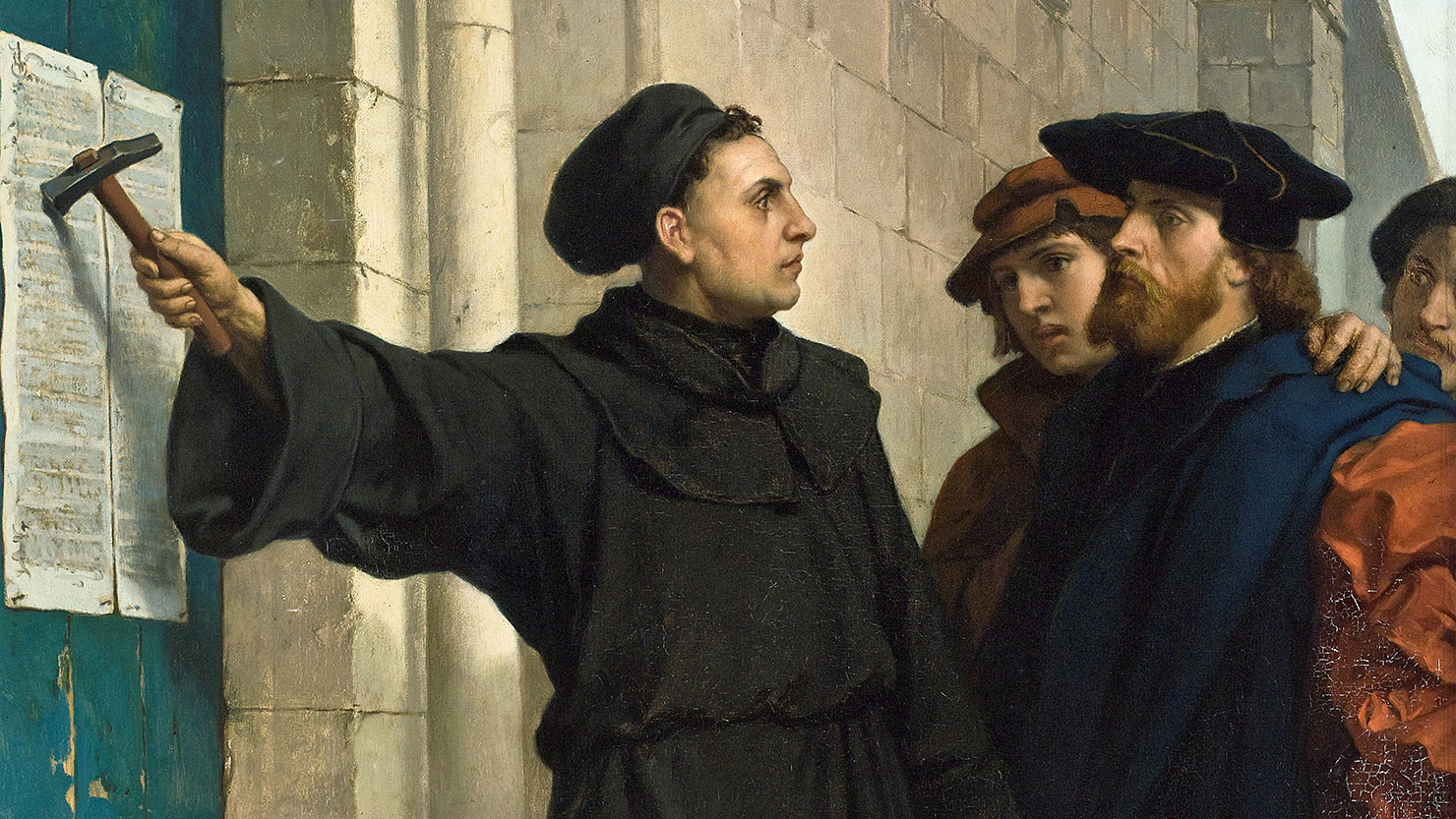
According to tradition, today marks the 500th anniversary of Martin Luther nailing his 95 theses to the castle church door in Wittenburg, launching the Protestant Reformation. Numerous books, articles, and museum exhibits this year have explored the ways in which this event shaped Western history, Christianity, and the world we live in today. But what does it have to do with education? Here are three things to consider:
1.Martin Luther was an advocate for education. Luther argued for widespread education, including the education of girls. His doctrine of “sola scriptura” (or scripture alone), as well as the argument that believers needed no intermediary between themselves and God, implied that Christians should be able to read the Bible. But Luther didn’t just advocate education for the sake of Bible reading: he advocated a broad education that included languages, history, music, and mathematics. And he advocated such education not only for boys, but also for girls. In a 1524 pamphlet, he encouraged cities in Germany to establish schools for both boys and girls, using an argument that may sound familiar to many today (though other arguments in the pamphlet will not!):
If it is necessary, dear sirs, to expend annually such great sums for firearms, roads, bridges, dams and countless similar items, in order that a city may enjoy temporal peace and prosperity, why should not at least as much be devoted to the poor, needy youth, so that we might engage one or two competent men to teach school?
(Lest one think Luther only believed men should teach, he also wrote a letter encouraging a former nun to become a teacher at a girls’ school he founded in Wittenburg.)
2. Martin Luther’s German translation of the Bible played a central role in education in 16th century Germany (and beyond).
3. The Reformation and its legacy is a great example of why schools today need to teach students about religion. The Reformation played a crucial role in shaping both Western history and the world we live in today, and students need to learn about it. And to really learn about it, they need to understand at least a little bit about Christian doctrine. If public schools do not teach children about the religious ideas (from a range of faiths and traditions) that have shaped history and the world we live in today, they’re not equipping them to deal with the challenges we face today.